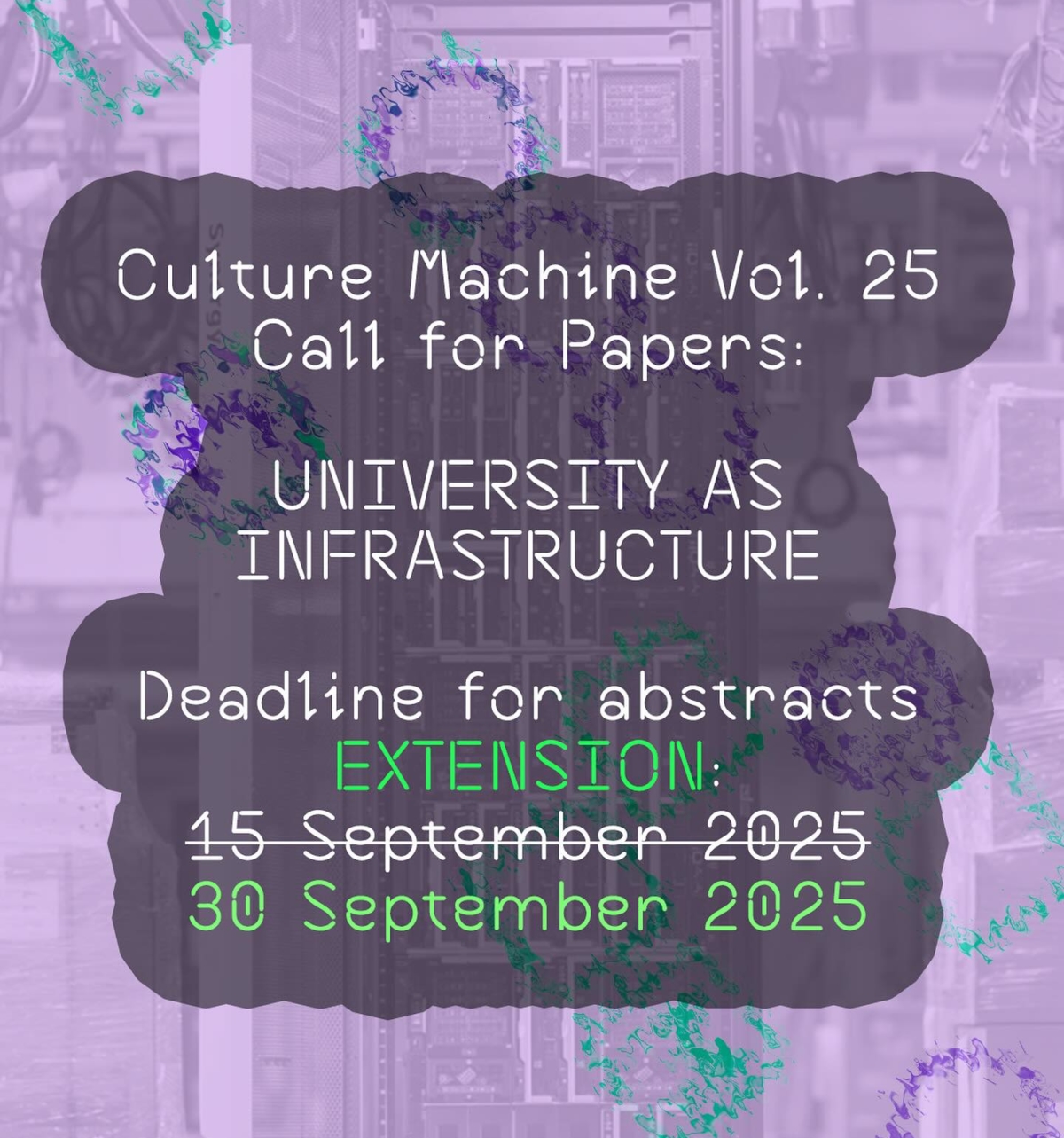Culture Machine Vol. 25
University as Infrastructure

Vol. 25 of Culture Machine aims to take stock of these infrastructural challenges to the collective creation of critical culture and theory. We argue that an understanding of the University from an infrastructural perspective helps to stress that the technologies it chooses to adopt follow a colonial and extractivist model with damaging effects on the wider environment and the well-being of people. What is required are viable alternatives — consisting of technologies but also knowledge practices and organisational cultures, with a commitment to care and justice in development and maintenance processes.
Initiated by the Critical Infrastructures & Image Politics research group at Winchester School of Art, University of Southampton, in collaboration with the Centre for the Study of the Networked Image, London South Bank University, and Critical Media Lab, Basel Academy of Art and Design, this special issue aims to take stock of the challenges and possibilities here for University as Infrastructure. We welcome submissions that interrogate the university’s integration into platform logistics and economies of datafication, on responsive/resistive methods, tactics and other approaches, contributions by people recently made precarious and/or redundant, and contributions that acknowledge critical traditions that take alternative understandings and practices of education to be a key site of social struggle.
Full description of the call, and details of how to submit, can be found at https://culturemachine.net/vol25-cfp-university-as-infrastructure/.